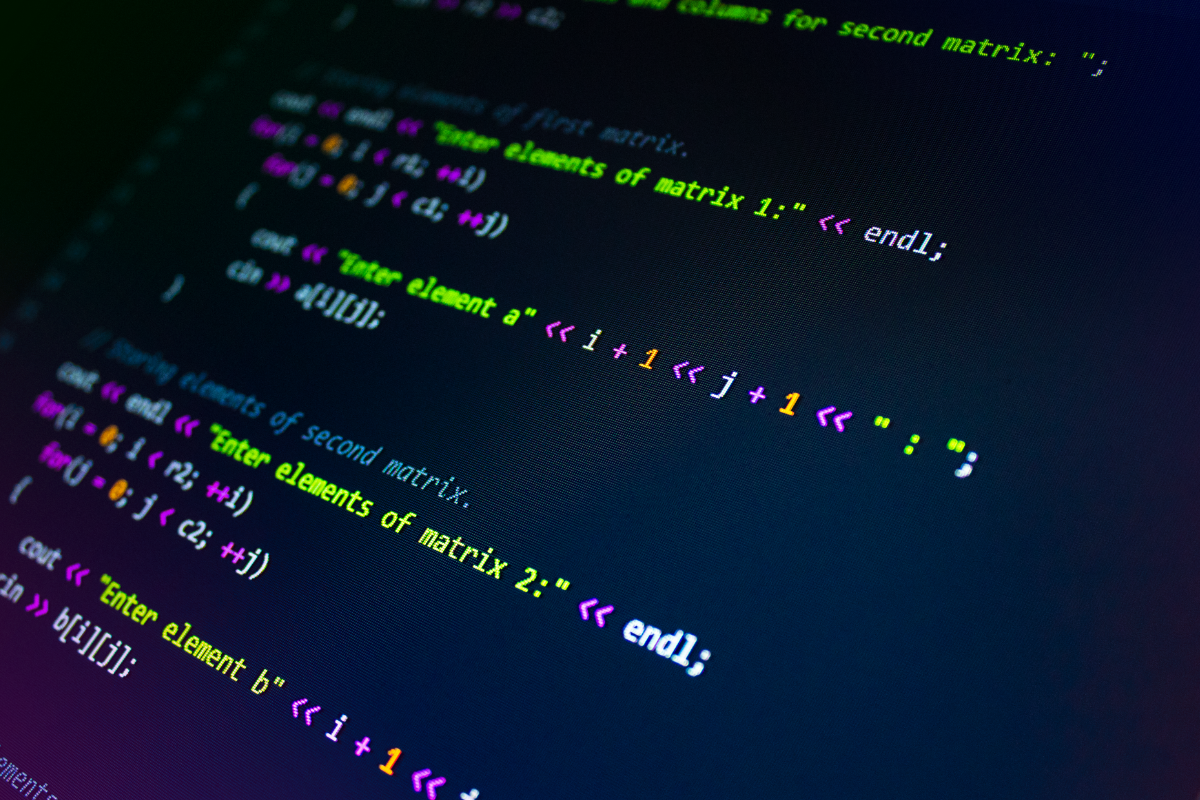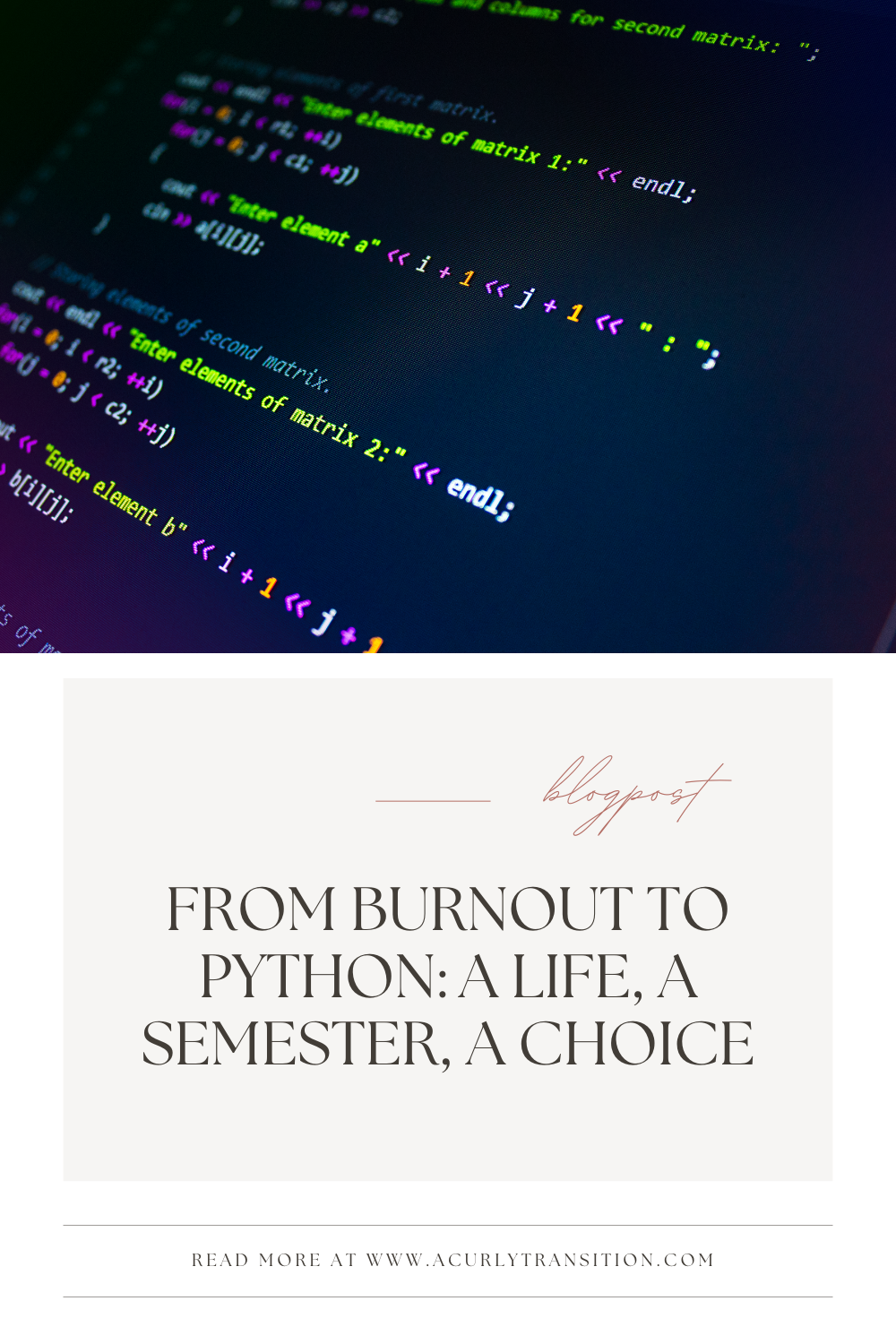
You figure it’ll be fine. Until it isn’t. Until the screen starts to blur, and the invisible pressure in your chest says, “You’re too late, too tired, too far behind.”
Until that tiny timer in the corner, the one that’s not technically part of the assessment, starts to feel like a countdown to personal failure.
Until the thing you want so badly suddenly feels like a threat instead of a goal. I get it. Because I’m there too. I’m rebuilding, not just my skills, but my whole life.
Coming out of burnout, wrestling with depression and ADHD, trying to hold the fragile pieces of ambition and self-preservation at the same time. And right now, I’m asking myself a hard question: Do I push through this Master’s program now… or give myself more time to do it without breaking?
This blog post isn’t a blueprint. It’s not a how-to. It’s an honest, messy reflection on trying to grow without self-destructing. If you’ve ever felt like your dreams are outpacing your energy, this is for you.
The Reality of Learning Later
When you’re learning something new in your 30s or 40s, especially something like coding, it’s not just about picking up a skill. It’s about unlearning a mountain of pressure. Because by now, you’ve probably spent years being “the fixer,” “the Googler,” or “the one who just figures it out eventually.” You’ve taught yourself bits and pieces of half a dozen tools. You know enough HTML to break something, enough Excel to hack together a dashboard, and just enough R to scare yourself.
Your brain is a mosaic, not a clean slate, and that means learning Python isn’t happening in isolation. It’s happening on top of a crowded mental desktop. You’re not just absorbing new syntax; you’re context-switching between responsibilities, memories, habits, and maybe even some pretty deeply-rooted imposter syndrome. It’s not the same as being 19 in a computer science course. It is like…
- Trying to debug your logic while your body quietly signals it’s running on low sleep and high stress.
- Rewatching the same tutorial for the third time because your brain can’t hold the steps from beginning to end right now.
And that doesn’t mean you’re not smart. It means your brain is multitasking survival and learning. The reality is: it is harder later. Not because you’re less capable, but because you’re carrying more with you.
The Clock, the Panic, the Pressure
Here’s the thing no one talks about enough:
It’s not always the complexity of the code that breaks you. Sometimes, it’s the presence of a ticking clock.
For me, that’s what did it. I opened the assessment. I was ready, or so I thought. I’d been practicing. I knew the material. But then I saw it: a digital countdown timer in the corner of the screen. Technically, the assessment wasn’t “timed.” But there it was, ticking down anyway, and something inside me froze.
Not because I didn’t know what to do. But because my brain, trained by years of stress and perfectionism, saw that clock and hit the panic button. Heart racing, mind blank, tunnel vision engaged.
That timer wasn’t just a feature, it became a threat.
A reminder that I might run out of time.
That I might fail in front of people I respect.
That I might not be enough.
And when you’ve been through burnout or depression, when your nervous system still doesn’t fully trust the world to be safe, that pressure is real. Even imagined urgency feels like danger. So no, it’s not “just in your head.” It’s in your body. It’s in your history. It’s in the way your brain has learned to protect you from things that once overwhelmed you. In that moment, even something as ordinary as a Python challenge feels like a test of your worth, not just your skill.
Burnout, Recovery, and the Bigger Picture
This isn’t just about Python. It’s about what happens when you try to build something new on ground that’s still being repaired. Over the past few years, I’ve been clawing my way out of a long stretch of burnout. The kind that doesn’t just exhaust you. It hollows you out.
I’m talking about the version where brushing your teeth feels like a task, and replying to a text message feels like too much emotional labour. While I’ve come a long way, I’m not out of the woods. Not fully. I’m still piecing things back together: my routines, my finances, my focus, my energy. I’m doing the slow, unglamorous work of healing.
Relearning what it means to show up for myself without slipping into overdrive and crashing all over again. So when people say “just keep pushing” or “you’ve come this far, don’t stop now” they mean well. But they’re not always seeing the full picture. They’re not seeing how much energy it takes to appear functional. They’re not seeing how fragile the progress feels. They’re not inside the body that’s been in survival mode for too long and is still waiting for the next emergency. They don’t realize how much energy it cost to just “appear functional”.
Trying to pursue a big academic goal such as full admission to a master’s program, isn’t just an application process. It’s an emotional reckoning. You’re not just proving you can code. You’re proving that you can still dream, still risk, still believe in something… even when part of you is still catching its breath.
So yeah. It’s about Python. But it’s also about something much deeper.
The Big Question
So now I’m sitting with the decision I didn’t want to have to make.
Do I push through and finish the assessment now?
Or
Do I defer to the Winter semester?
Do I give myself a few more months, let the foundation get sturdier, and try again when I’m less likely to collapse under the pressure? It doesn’t feel like a choice between success and failure. It feels like a choice between two versions of success:
1) One that’s rushed, fragile, and held together by adrenaline.
2) One that’s slower, steadier, and built with care.
But when you’ve spent most of your life achieving, in spite of yourself, ignoring your limits, pushing past burnout, measuring your worth by output…….
Choosing the slower version can feel like giving up. Even when it’s not. Because here’s the truth:
Wanting more time doesn’t mean you’re lazy.
Wanting space to heal doesn’t mean you’re uncommitted, and deciding not to break yourself in order to “prove” your readiness?
That’s not weakness. That’s wisdom.
This decision isn’t easy. I still haven’t made it. But what I am doing is giving myself permission to ask the question. Honestly and without shame. Maybe that, in itself, is a kind of progress.
The Honest Conclusion
In the past, I would’ve powered through. I would’ve told myself that rest is for later, that discomfort means growth, that pushing past my limits is the only way to prove I deserve a seat at the table. But I’ve lived that story. And I know where it leads: to anxiety, to exhaustion, to achievements that come at the cost of my health and happiness.
This time, I want a different ending. I don’t want to succeed by dragging myself over the finish line, burnt out and brittle. I want to succeed with myself, supported, steady, and still whole.
So if you’re standing where I’m standing, at the intersection of ambition and exhaustion, desire and doubt.
Let me just say this:
You’re not weak for needing more time.
You’re not behind because your journey doesn’t look linear.
You’re not failing for pausing to breathe.
You’re just being human and learning how to grow in a way that doesn’t cost you everything.
And that?
That’s its own kind of mastery.

